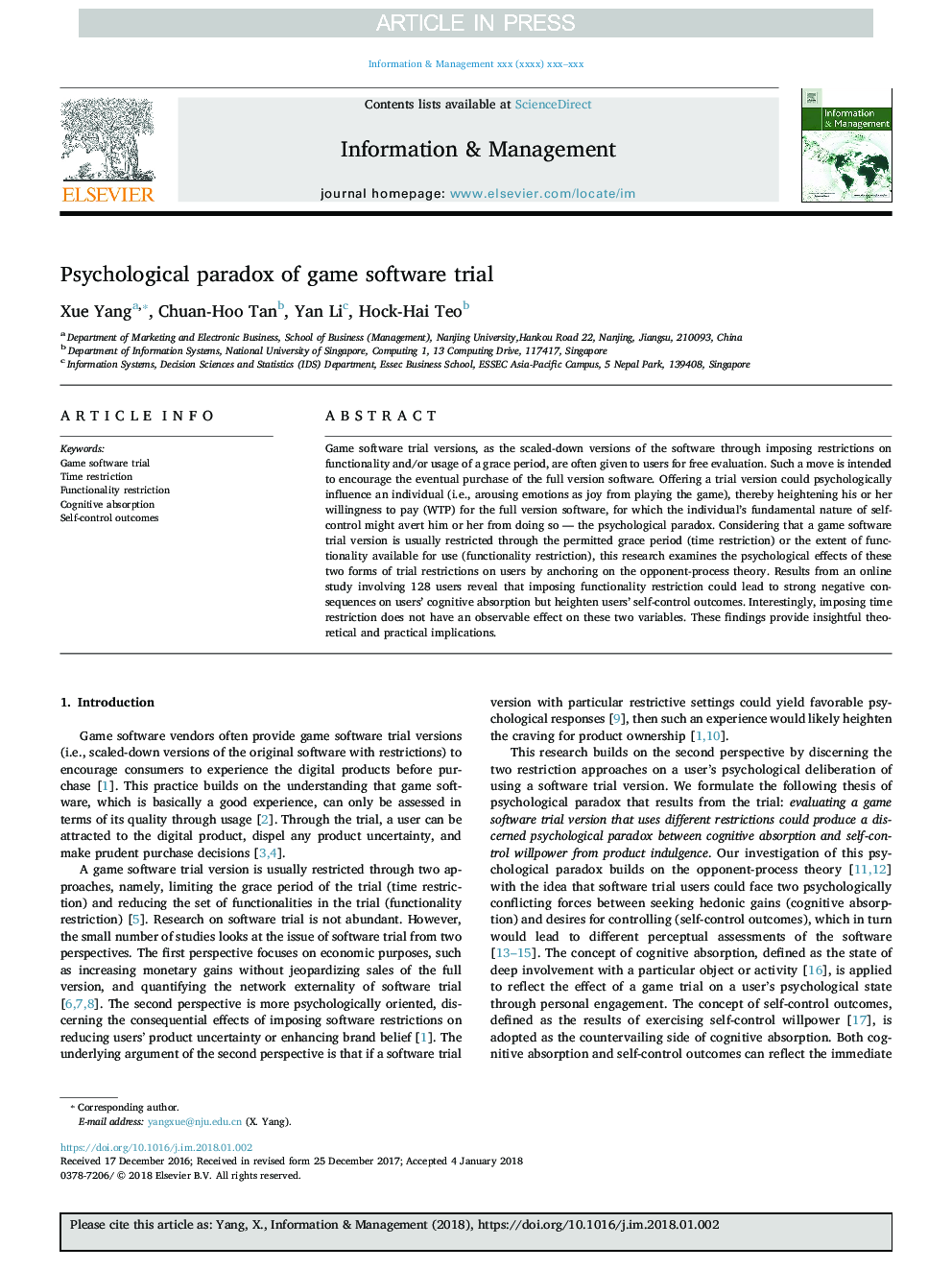| Article ID | Journal | Published Year | Pages | File Type |
|---|---|---|---|---|
| 6948780 | Information & Management | 2018 | 13 Pages |
Abstract
Game software trial versions, as the scaled-down versions of the software through imposing restrictions on functionality and/or usage of a grace period, are often given to users for free evaluation. Such a move is intended to encourage the eventual purchase of the full version software. Offering a trial version could psychologically influence an individual (i.e., arousing emotions as joy from playing the game), thereby heightening his or her willingness to pay (WTP) for the full version software, for which the individual's fundamental nature of self-control might avert him or her from doing so - the psychological paradox. Considering that a game software trial version is usually restricted through the permitted grace period (time restriction) or the extent of functionality available for use (functionality restriction), this research examines the psychological effects of these two forms of trial restrictions on users by anchoring on the opponent-process theory. Results from an online study involving 128 users reveal that imposing functionality restriction could lead to strong negative consequences on users' cognitive absorption but heighten users' self-control outcomes. Interestingly, imposing time restriction does not have an observable effect on these two variables. These findings provide insightful theoretical and practical implications.
Keywords
Related Topics
Physical Sciences and Engineering
Computer Science
Information Systems
Authors
Xue Yang, Chuan-Hoo Tan, Yan Li, Hock-Hai Teo,
